SEE Study Abroad Experience
Considering Studying Abroad?
First step for EEE students, complete this required Qualtrics info survey that will guide you through study abroad resources prior to you meeting with your EEE advisor. Upon completion you will be more aware of existing resources, have knowledge that will empower you to make informed decisions, and know where to find help when needed. In addition, any follow up meetings with your EEE advisor will be more productive while focusing on your specific questions that still remain. Go to the Qualtrics info survey.
EEE encourages students interested in international learning experiences abroad to consider traveling to one of the locations listed below for which EEE is specifically developing study abroad programs. These preplanned programs will identify course substitutions* and make it easier for students to plan a semester abroad, either fall or spring, during the junior year.
Course planning is done individually with each student, but the best courses to reserve for your semester abroad are: BIOL 28600, STAT 51100, Technical Electives, General Education Electives, and EEE Selectives (not Category A,B,C). Check out the current list of course options; additions being made frequently. *Substitutions - EEE reserves the right to further evaluate coursework to confirm enrollment priorities for future semesters.
Learn more about studying abroad on the ‘Getting Started’ Purdue Study Abroad page.
Watch Purdue Study Abroad office videos on how to choose a destination, apply and pay for study abroad.
Study Abroad Student Testimonials
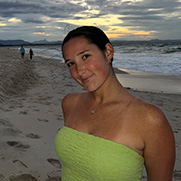
Living in another country on the opposite side of the world allowed me to find myself and my purpose. I chose EEE because my goal is to implement sustainable building strategies into cities experiencing the Urban Heat Island Effect (UHI). This occurs when urbanized areas become “islands” experiencing higher temperatures than outlying areas. Sydney is the perfect location to study this firsthand; I was able to observe the unique environmental solutions and adaptations that Australia has taken to remediate the UHI effect in an already hot climate. I also studied ecology, the risks and impacts of climate change, and topics in Australian marine science, all of which helped me to increase my understanding of how Australia is impacted by global environmental changes. For my ecology course, we collected data on invertebrates at two of Sydney’s parks and compared the diversity, richness, and relative abundance of invertebrates between the two areas in order to conclude which ecosystem is healthier and more functional. This allowed me to apply my EEE classroom knowledge to real-world environments with which I was unfamiliar." ~ Ella Brodt (Sydney, Australia)
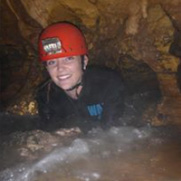
I studied at the University of Canterbury in Christchurch, New Zealand during the spring 2017 semester. While there, I took two environmental engineering courses, one political science course, and a course on the culture and society of the Maori people. It was a great place to study EEE because New Zealand has some unique environmental issues, so I appreciate having the opportunity to study how other communities are solving environmental problems and trying to figure out if there’s any way for similar solutions to work in the United States. My favorite thing about New Zealand was all of the outdoor adventures! Just to name a few, my favorite hikes were the Franz Josef Glacier (the fastest moving glacier in the world), the Tongariro Alpine Crossing (Mt. Doom for you Lord of the Rings fans), and the Abel Tasman great walk. I can’t stress enough how amazing my time abroad was, and how it has impacted my life. I’m definitely more confident in myself than before I went, and now I have a huge travel itch! Because of my time abroad, I’m considering jobs and careers that I would have never considered before." ~ Emily Conkling (Christchurch, New Zealand)
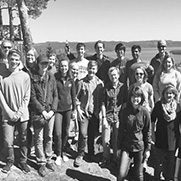
EEE is a very broad field that has multiple solutions to some of the same problems. While it's easy to learn about the techniques, seeing them in practice is much more valuable for my education. Going to Sweden allowed me to see some practices I had never even heard of, and it definitely expanded my mindset when approaching new problems." ~ Greg Dieter (Sweden)
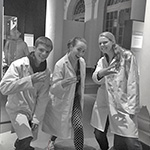
I wanted to immerse myself in another culture to become more open minded and gain more perspectives for looking at environmental issues. I really enjoy traveling and the Sweden Sustainability Across Sectors Maymester course was the perfect amount of time to be able to study abroad in a unique country and then come back home and complete a summer internship." ~ Anne Hayes (Sweden)
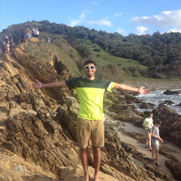
I’ll just say it right away: studying abroad was the greatest travel experience I have ever had (which is saying quite a bit as I have traveled and lived in numerous other countries). I went in with pretty high expectations and they were easily beaten, although surprisingly not due to all the experiences I had, but the people. I never expected to find such good friends on this trip and that was truly the best part of the whole experience. That is not to say I didn’t have a good time otherwise. Outside of the classes (four hours a day at times I might add), I saw Australia in all different ways. From talking to indigenous Australian people to surfing to nightlife and festivals, to the beautiful landscape, and not to mention great food, I was not lacking in activities to take up my time. This trip has reignited my passion to travel and see the world and also shown me that being open to new experiences and people can create the most amazing experiences of your life. Overall, I can’t imagine seeing the country in a different way than I did and it is a summer I will never forget." ~ Alexander Nathan (Sydney, Australia)
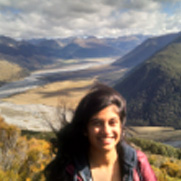
I studied abroad at the University of Canterbury in Christchurch, New Zealand in Spring 2015. The opportunity to live in a new country allowed me to understand the way of life in New Zealand compared to that of the U.S. The people of New Zealand live a very relaxed, rural, and slow-paced life whereas Americans are constantly busy. In addition, the indigenous Mori people of New Zealand have a very prevalent culture, performing dances nationally, creating extraordinary art and cooking the traditional Hangi meal (mix of meat, vegetables, and pudding) using wood and volcanic rocks. I enrolled in a Sustainable Energy Systems course, allowing me to gain an understanding of New Zealand’s stance on renewable energies in comparison with the U.S. and Denmark. For my Ecology course, I took a field trip to Cass Mountains for four days where I hiked to survey plants and trees (pictured) and performed experiments with insects and lizards. I took a week trip with a friend from the South Island to the North Island. We traveled to Kaikoura with beautiful waters and seals (pictured), and then we took the inter-islander ferry from the South Island to the North Island, docking at the capital city of Wellington. Following our stay in Wellington, we traveled to Taupo, with a beautiful lake which we skydived over at sunset. The next day we went to Rotorua, the city where we went to the geothermal hot springs and went white water rafting. Our trip ended with a tour of Auckland, the largest city of New Zealand. Studying abroad can be an awesome opportunity. I encourage other students to consider how to include a global experience into their academic career." ~ Silpa Varanasi (Christchurch, New Zealand)
Other Institutions
- University of New South Wales, Australia
- Universidade Federal de Vicosa (UFV), Brazil
- University of Magdeburg, Germany
- UMN-University of Auckland, New Zealand
- National University of Singapore, Singapore
- ETH/Swiss Federal Institute of Technology, Switzerland
- Universidad Complutense de Madrid, Spain
- University of Canterbury, New Zealand
- National University of Ireland – Galway, Ireland (1st priority to BME and ME)
Application Deadlines
- March 1st: Fall Academic Year and most Summer programs
- September 15th: Spring Semester programs
- February 1st: Summer Internships and select Summer programs
Other Sources of Information
Funding Opportunities
SEE Undergraduate Office
Potter Engineering Center, Room 364
500 Central Drive
West Lafayette, IN 47907-2022
Hours: Monday - Friday, 8:00 AM to 4:00 PM
Contact SEE
Phone: (765) 496-9697
Email: eeeug@purdue.edu
Web: www.engineering.purdue.edu/SEE
SEE Social Media: Facebook, Instagram, X, LinkedIn
